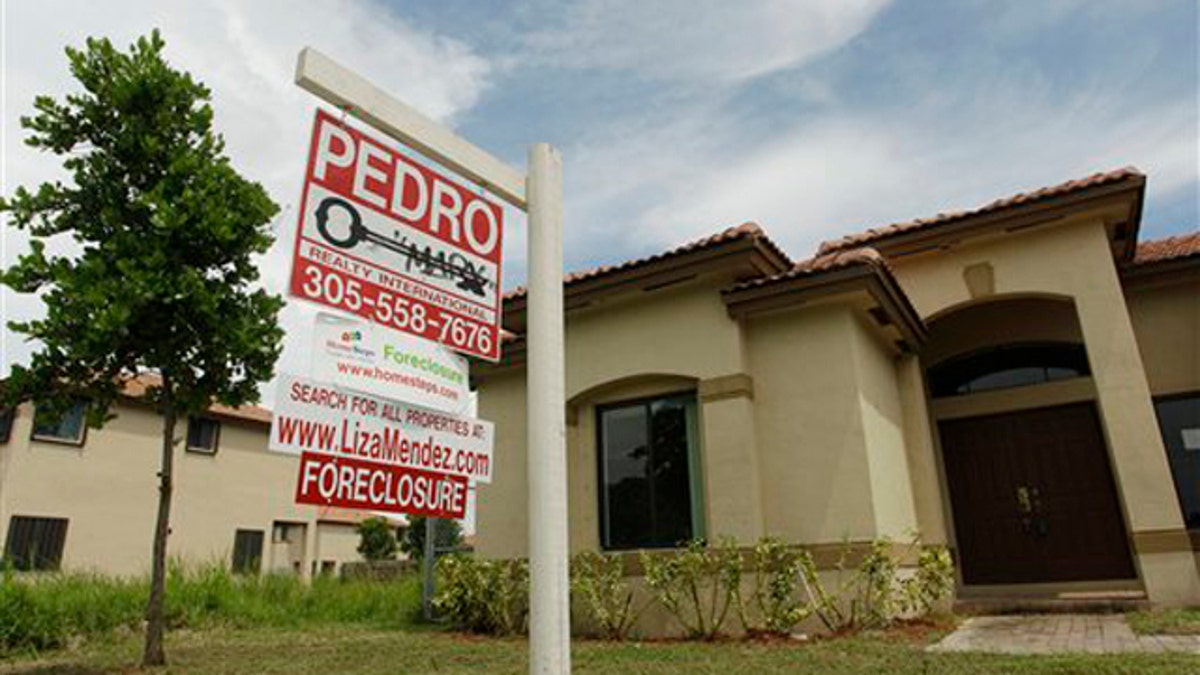
In this file photo, a house in Homestead, Fla., sits empty for sale as a foreclosure home. (AP)
Despite offering "promising signs" that the recovery of the housing market is underway, Secretary of Housing and Urban Development Shawn Donovan came under fire Thursday on Capitol Hill over the poor financial health of the Federal Housing Authority.
The beleaguered FHA has suffered billions of dollars in losses, which some fear may portend another bursting of the housing bubble or even the need for a taxpayer bailout. Lawmakers raised concern Thursday that the problem is spiraling out of control.
"This is now the fourth year in a row that the FHA fund has been below its statutory minimum capital levels," ranking member of the Senate Banking Committee Sen. Richard Shelby, R-Ala., told Donovan. "Yet each year, we are told that this is a temporary dip and that within a few years, everything will be fine."
By law, FHA is required to maintain a capital reserve of 2 percent. But a recent audit by the agency projects a negative 1.44 percent capital reserve -- meaning the agency's lending fund stands at a negative $16.3 billion.
FHA is not a traditional mortgage lender like Fannie Mae and Freddie Mac. Instead, it insures mortgages. But its exposure to risk comes from what one critic, Edward Pinto at the American Enterprise Institute, has called "irrational" lending rates.
The FHA allows borrowers to qualify for its insured mortgages by putting only miniscule down payments on the purchase of a home -- as little as 3.5 percent of the home's value, compared with private lenders' requirement of 20 percent of a home's value.
Without putting down large down payments, borrowers are at much greater risk of foreclosure. Indeed, 11 percent of the FHA loans given out in 2009 and 24 percent of those given out in 2008 are delinquent today.
Donovan argued Thursday that the administration is being careful.
"We will continue, as we have throughout this administration, to be diligent in taking every action appropriate to protect taxpayers while continuing to ensure that FHA supports the stabilization of the housing market, and that families have access to sustainable mortgage credit options," he said.
But a skeptical Congress is stepping up with its own plan. The House recently passed the FHA Emergency Fiscal Solvency Act which attempts to protect FHA insurance reserves by creating minimum mortgage insurance premiums. It also strengthens FHA internal controls and auditing procedures, and requires any lenders who commit fraud to pay back the FHA for any losses incurred.
But some fear the bill, which passed overwhelmingly last September, may be a case of too little, too late -- since any stumbles on the housing market's road to recovery could send the FHA into bankruptcy.




